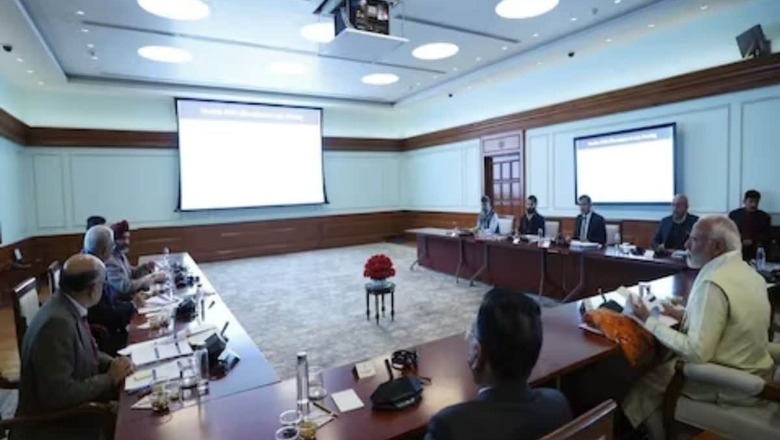
views
In his first move following the Ram Mandir Pran Pratishtha ceremony, Prime Minister Narendra Modi announced the launch of the Pradhan Mantri Suryodaya Yojana. This visionary scheme aims to provide rooftop solar power systems to one crore households across the country, with several states offering subsidies to facilitate its implementation. For those considering the installation of rooftop solar plants, this initiative presents an excellent opportunity not only for adopting sustainable energy but also for realising significant electricity savings at home.
Reports indicate that the installation of rooftop solar plants has already commenced in states such as Uttar Pradesh, Bihar, Rajasthan, Maharashtra, and Madhya Pradesh. However, there seems to be a lack of widespread enthusiasm among the public, despite the potential benefits.
Under this scheme, the central government is providing a substantial 40% subsidy on the installation of solar panels with a 3-kilowatt capacity. For those opting for a larger capacity of 10 kilowatts, a still considerable 20% subsidy is being offered.
Neeraj Kuldeep, Senior Programme Lead at the Council on Energy, Environment, and Water, emphasised the vast potential for installing rooftop solar in both rural and urban areas across India. Research suggests that more than 640 gigawatts of rooftop solar plants could be installed in homes, showcasing the significant scale of this initiative. Currently, around 7 to 8 lakh households have already embraced rooftop solar, benefiting from the government’s capital subsidy program.
Kuldeep highlighted the positive impact of a substantial increase in rooftop solar homes, estimating that a 12-14x surge would add 20-25 gigawatts of solar power capacity. Beyond the environmental benefits, this surge could aid states in saving power subsidies and contribute to improving the financial health of power distribution companies.
Since 2022, an online portal has been available on the official website for interested individuals to apply for the installation of solar plants in their homes. The application process requires providing essential details such as the state name, electricity bill number, mobile number, email ID, and the name of the electricity distribution company.



















Comments
0 comment